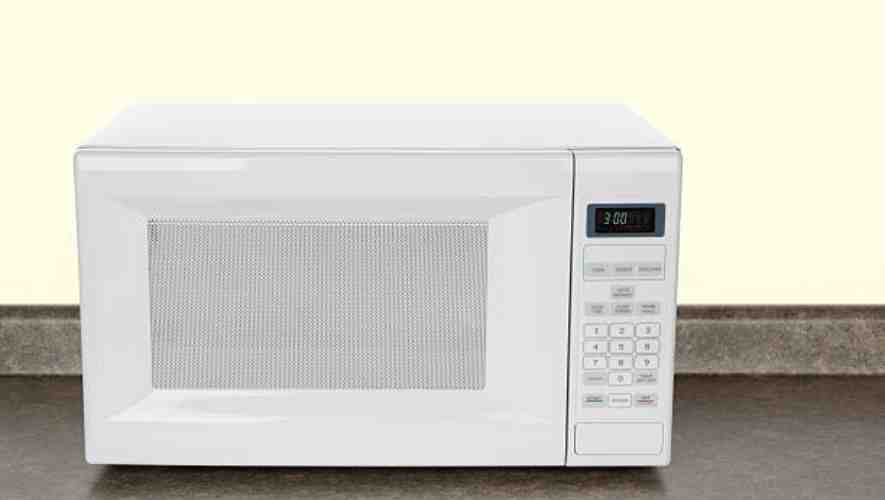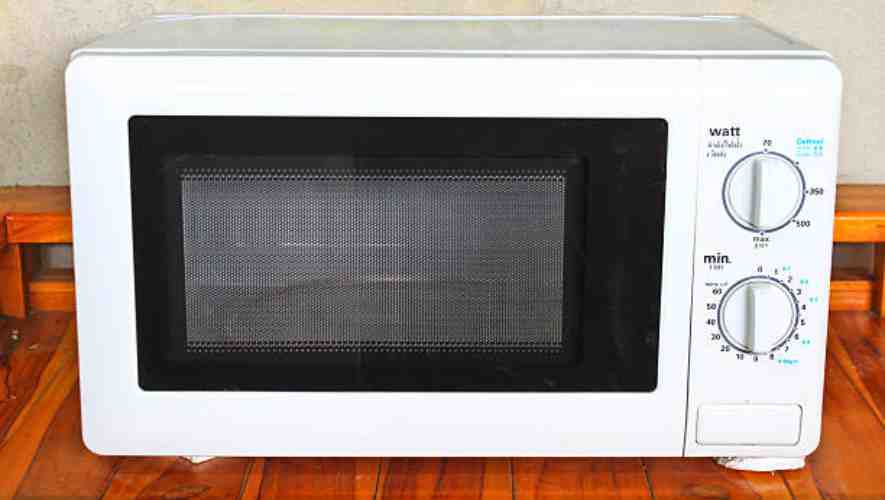Ever wondered just how heavy a microwave oven is? Well, when it comes to figuring out the weight of this essential kitchen appliance, there’s quite a range to consider. Typically, the weight of a countertop microwave can vary depending on its size, model, and the features it offers. Smaller models might be as light as 20 pounds, making them easy to shuffle around in your kitchen. On the other hand, larger ones with more cooking power and extra features can tip the scales at around 50 pounds.
How Heavy is a Microwave Oven? The weight of a microwave oven typically ranges from 20 to 50 pounds (9 to 23 kilograms), depending on the size, model, and features. Compact microwaves are usually lighter, while larger, feature-rich models tend to be on the heavier side.
Now, why does this matter? Well, if you’re planning to get one, you’ll need to think about where it’ll sit in your home. Most folks use their microwaves every day, so it’s crucial to pick a spot that’s convenient but can also support the weight. Plus, knowing the poundage is handy when it comes time to ship or move. Whether you’re upgrading to a newer model with sharp technology and high wattage or just curious about what goes into the engineering of these appliances, understanding the weight helps you appreciate the blend of quality, power, and practical use they come packed with.
How Much Does a Countertop Microwave Oven Weigh? Explore Features and Specs

Understanding the Weight Range
Countertop microwaves come in a variety of sizes and weights, typically ranging from as light as 20 pounds to about 75 pounds. The weight depends on the model, size, and materials used—like stainless steel or glass. Compact models are lighter and great for tiny spaces like dorms or small apartments. In contrast, full-size microwaves tend to be heavier and may require more robust installation.
Features That Impact Weight
The features of a microwave can significantly affect its weight. For instance, microwaves with a stainless steel body and a built-in glass turntable are generally heavier. These models are not just about heating up your leftovers; they come equipped with advanced technology like defrost settings, variable power controls, and even smart systems used in more commercial settings. Features like these not only add functionality but also additional weight.
Specs to Look For
When comparing models, look at the specifications closely:
- Power Settings: Ranging from 400 to over 1000 watts, higher power means quicker cooking but can also add to the weight.
- Capacity: Measured in cubic feet, from compact 0.70 cu ft models ideal for personal use to larger 1.80 cu ft models for bigger needs.
- Built-in Features: Some microwaves come with pre-programmed settings and sensors that adjust cooking times and power levels based on the moisture content of the food, adding both to the complexity and the weight of the microwave.
Choosing the Right Microwave
Before buying a microwave, consider your specific needs:
- Space: Measure your counter space to ensure the microwave fits without crowding your kitchen.
- Usage: If you’re frequently hosting or have a large family, a bigger and possibly heavier microwave with more capacity might be the best deal.
- Mobility: For those in transitional living situations like a temporary office setup or moving between homes, a lighter, more compact microwave might be perfect.
Conclusion
In conclusion, choosing the right countertop microwave isn’t just about the weight—it’s about finding a product that fits seamlessly into your life and kitchen. Whether you live in a dorm, an apartment, or a family home, there’s a microwave that can meet your needs. From basic models that handle simple heating tasks to advanced machines that come with a host of cooking features, the variety is vast. Microwaves with power settings ranging from 400 to 1000 watts offer flexibility in cooking, from quick reheats to full-on meal preparations.
Moreover, understanding the specifications and development processes involved in the manufacture of these microwaves can help you make a comparison that goes beyond just size and weight. You can choose based on efficiency, power, and additional features that can make your culinary process easier. The result? A kitchen experience that is more streamlined and efficient, whether you’re pulling a late-night snack from the refrigerator or hosting a major dinner party.
As you integrate your microwave into your daily routine, you’ll discover that it’s more than just an appliance—it’s a key player in your cooking adventures. So, consider what you specifically need from your microwave and how it fits within your space and cooking style. With the right information and a clear understanding of the available options, you can choose a microwave that not only fits perfectly on your countertop but also enhances your cooking capabilities, making anything possible in your culinary explorations.
Frequently Asked Questions (How Heavy is a Microwave Oven)
How much does a microwave weigh?
The weight of a microwave can vary significantly, but on average, a countertop microwave weighs around 35 to 45 pounds (15.9 to 20.4 kg), while a smaller, compact model might weigh between 20 to 30 pounds (9.1 to 13.6 kg).
What is the weight of 20l microwave?
The weight of a 20-liter microwave typically ranges from 11 to 14 kilograms (24 to 31 pounds), depending on the brand, model, and materials used in its construction. Compact models tend to be lighter, while feature-rich models may be heavier.
Why are microwave ovens so heavy?
Microwave ovens are heavy due to the presence of a metal chassis for structural support, a transformer that converts electrical energy for the magnetron to use, and the magnetron itself, which generates the microwaves. These components contribute to the oven’s overall weight.
What is the average weight of an over the range microwave?
The average weight of an over-the-range microwave typically ranges from 50 to 75 pounds. This variation depends on the size, model, and features of the microwave, with larger and more feature-rich models weighing more.

